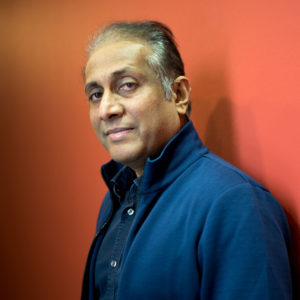W18: Workshop on Machine Learning and Artificial Intelligence for Communications: Air Interface Design in 6G
Chair: Nandana Rajatheva, University of Oulu, Finland
Abstract: As fifth-generation (5G) cellular networks transition from academic research to commercialization, the wireless communication community has already started exploring the machine learning and AI for the sixth-generation (6G) wireless systems. There is a new study item in 3GPP on AI. The investigations to be carried out will focus of new use cases (such as extreme capacity xHaul, high-mobility hotspots, and fully autonomous vehicles) while realizing the full potential of others that have just emerged in 5G (such as smart transportation and industrial automation/robotics). At present, several technologies are being regarded as potential enablers to achieve the desired paradigm shift, including the adoption of new spectral bands, cell-free massive multiple-input multiple-output (MIMO), reconfigurable intelligent surfaces (RISs) to name a few. This workshop will focus on the machine learning and AI methods that are required to realize those mentioned in 6G, along with the applications. It aims at gathering researchers from both academia and industry to open up new disruptive research avenues for the development of future wireless systems. This workshop will be a venue to brainstorm on and to identify emerging concepts, technologies, and analytical tools for machine learning and AI in 6G. We aim to bring together leading researchers in both academia and industry, and to provide a forum for researchers from diverse backgrounds to share their views on having these for 6G, and to have an open dialogue on the future of wireless research.
We invite submissions on a wide range of topics in AI and ML including, but not limited to, the following:
End to end PHY layer design and learning
Coding, Modulation and Decoding
Sensing aided communications ( vision/RADAR/LiDAR)
Channel estimation and receiver processing
Resource allocation
Initial access, beamforming, beam tracking, mobility solutions
Waveform design and learning
Energy efficiency, Energy consumption models
Reconfigurable Intelligent Surfaces (RISs)
Cell-free massive multiple-input multiple-output (MIMO)
High-mobility hotspots
Chair Bio:
 Nandana Rajatheva
Nandana Rajatheva
Bio: Nandana Rajatheva (Senior Member, IEEE) received the B.Sc. (Hons.) degree in electronics and telecommunication engineering from the University of Moratuwa, Sri Lanka, in 1987, ranking first in the graduating class, and the M.Sc. and Ph.D. degrees from the University of Manitoba, Winnipeg, MB, Canada, in 1991 and 1995, respectively. He was a Canadian Commonwealth Scholar during the graduate studies in Manitoba. He held Professor/Associate Professor positions with the University of Moratuwa and the Asian Institute of Technology, Thailand, from 1995 to 2010. He is currently a Professor with the Centre for Wireless Communications, University of Oulu, Finland where he is involved with the Finnish 6G Flagship project and was TPC chair of 2nd 6G wireless summit. He is track co-chair of 6G enabling technologies in joint EUCNC-6G summit 2021and 2022. He is leading the AI-driven Air Interface design task in Hexa-X EU Project. He has coauthored more than 200 refereed papers published in journals and in conference proceedings. His research interests include physical layer in beyond 5G, integrated sensing and communications, applications of machine learning for PHY and MAC layers. website: https://sites.google.com/view/profnandanarajatheva
Technical Program Committee:
MERLUZZI Mattia, CEA, France
Filippou, Miltiadis, Intel, Germany
Gomes Baltar, Leonardo, Intel
Markus Dominik Mueck, Intel
Luc LE MAGOAROU, BCOM
Korpi, Dani (Nokia – FI/Espoo), Nokia
Mohammadi, Jafar (Nokia – DE/Stuttgart), Nokia
Johan Haraldson, Ericsson
Quentin Lampin, Orange, France
LARUE Guillaume TGI/OLS, Orange, France
Dileepa Marasinghe, University of Oulu
Ismath Mohamed Insaf, University of Oulu
Nuwanthika Rajapakshage, University of Oulu
Vismika Ranasinghe Mudiyanselage, University of Oulu
Dilin Dampahalage, University of Oulu
Nipuni Ginige, University of Oulu
Thushan Sivalingam, University of Oulu
Samad Ali, University of Oulu
Deadlines:
Workshop paper submissions due EXTENDED: 23 March 2022
Acceptance notification: 17 April 2022
Final paper submission due: 1 May 2022
To submit a paper to this workshop, please visit: https://vtc2022s-rr-wks.trackchair.com/track/2053
